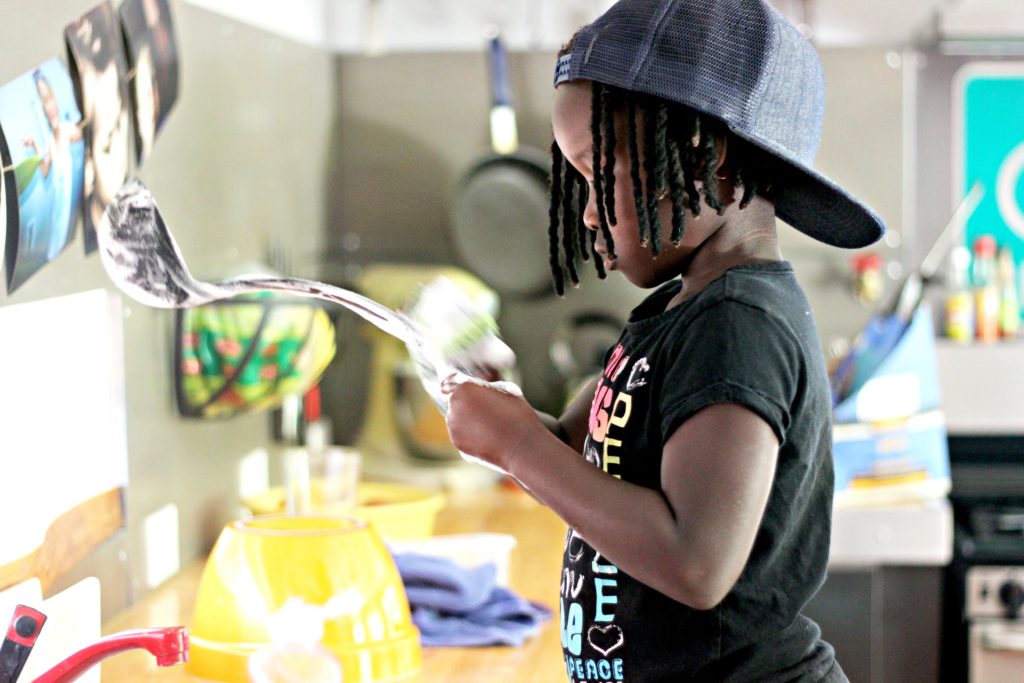Brutiful—a mix of beautiful and brutal. I found myself thinking of these words, and their combination coined by author Glennon Doyle, during the very joyous day this past September when my family adopted Leasia. We were so excited for her to officially become a Tackett. But we were also heartbroken: this was not how Leasia’s story was supposed to go. What better word, then, to describe this sharp, contradictory mix of feelings?
In the weeks and months since the adoption, our friends have asked us how they can support our new family. Warmed by their enthusiasm, I outlined four actions, some simple, some complex.
I share those actions with you now in the hopes that they will spur greater understanding of the crucial role family and community support plays in upENDing child welfare.
Dear Friends and Family, I wrote. To help us be the family and community that Leasia deserves, I ask you to consider taking a few actions:
Learn the Nuance of This:
Welcoming Leasia into our family is joyous and full of love; our hearts are full and we are celebrating. Yet all adoptions, especially through child welfare, are complex. In light of our nation’s history, the act of a White family adopting a Black child requires us to reflect on our country’s legacy of oppressive systems and anti-Black racism. As meaningful as our foster care journey has been, it is not lost on us that part of Leasia’s family has been ripped apart.
Love Leasia’s Life:
I’ve worked with kids for 20 years and I’ve never met a child (or adult) more generous than Leasia. She is also brave and empathetic, curious and energetic, loving and eager. Leasia descends from kings and queens; she is her ancestors’ wildest dreams. Loving Leasia means seeing her tremendous assets and potential first. It also means cultivating awareness of the challenges she’ll face as a Black girl in our country. Unequivocally, we must say that Black Lives Matter, and act like they do.
upEND Child Welfare:
Once, I asked Judith Meltzer, CSSP’s President, “Where does child welfare work well?” I was frustrated, and wanted assurance that somewhere, the system was serving children and families.
Her response: “There is no best child welfare system. There is only the least-worst. [But] the best system is no system. The silver bullet is preventing children from entering the system in the first place.”
In the spirit of her remark, we must commit to working to create a society in which the forcible separation of children from their families is no longer an acceptable solution for families in need. Our family’s experience has highlighted that the future requires new ways to dismantle racist child welfare policies and practices and instead promote new investments that support families and communities so that children and families can heal.
Build Our Community:
Finally, Leasia’s parents are still her parents, her family is still her family, and no piece of paper will make them any less so. Regardless of how involved Leasia’s parents are in her day-to-day life, we are all family, and we all love this wonderful girl. Because language matters, I ask you to see that there are no biological parents or biological cousins in this family; no adoptive grandparents or adoptive siblings. We are all family.
Being part of the foster care system is brutifal—both beautiful and brutal. This week we welcomed into our home two more children who are part of child welfare. We agreed to this after making a few commitments to ourselves and to our community. We will advocate relentlessly for their family to reunify. We will support the campaign for universal and high-quality preschool so no parent must choose between work and the healthy development of their children. We will do our part to destigmatize mental illness, to provide effective substance abuse treatment and prevention, and to make accessible a range of other services to strengthen families. We will only foster if we are also working towards the day, in our lifetimes, when no more children are forcibly separated from their families and communities.
We are humbled and honored every day by the light and love Leasia has brought into our lives. And we understand that part of caring for this child means working for the world we want for each and every child.
Larkin Tackett is the Founder and CEO of MAYA Consulting, which provides a range of services in the education sector. He is also a member of CSSP’s Board of Directors. Read his full bio here.
